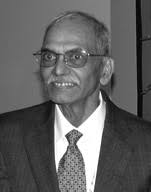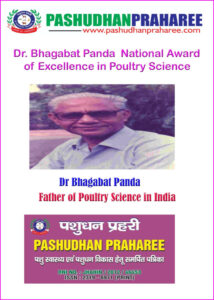ALL INDIA POPULAR ARTICLE WRITING COMPETITION FOR “DR G.L JAIN EXCELLENCE AWARD 2022 & Dr. Bhagabat Panda National Award Of Excellence 2022 TO BE GIVEN ON WORLD EGG DAY-14th OCTOBER 2022
On the occasion of world egg day ,The www.cevsle.org,www.pashudhanpraharee.com,www.ibevm.com www.goelvetpharma.com & & LITD (Livestock Institute of Training & Development) are going to conduct an all India popular article /essay writing competition on:
”ANY POPULAR TOPIC BASED ON POULTRY FARMING.” Both in English & Hindi Languages.
WHO CAN PARTICIPATE-
Innovative Poultry Farmers/Entrepreneurs , field veterinarians & veterinary Scholars/ University Academia /KVK Scientists/Poultry Veterinarians
Following are the criteria and details about the competition.
Term and Condition:
Languages: English and Hind (Mangal Fonts)
Topic:
“ ANY POPULAR TOPIC BASED ON POULTRY FARMING”
Last date for receiving entries: 12th October, 2022
COMPETITORS:
There is NO ENTRY FEE for participation.
This competition is open for Regd.Veterinarian & Innovative Poultry Farmers/ Entrepreneurs.
No Competitor may win more than one prize.
ADJUDICATION AND PRIZED:
The winners will be decided on the basis of merits by a team of distinguished jury
The result of the best Articles will be published on 13th October 2022.
Date of Commencement of Article writing competition & Nomination Process:
The enteries are acceped from 27th September 2022 to 12th October 2022
The right to decision is reserved with us.The decision of the admin will be final and The Pashudhan Praharee will NOT enter into any correspondence about the results.However, we assure that the competition will be fair and transparent.
All the submitted entries selected for competition will be published in our Pashudhan Praharee website.
A list of prize-winners will be uploaded on the website
The sellected Received articles would be compiled & will be published in a book form bearing ISBN No.(Proposed)
ENTRY:
The following procedure be followed for sending the entries:
Article can be sent through e-mail at pashudhanpraharee@gmail.com
Article must be typed in MS Word with Times New Roman fonts in English and Unicode Mangal fonts in Hindi.
Article should not be in more than 6000 words.
Article must contain 10 key words,
References of the article not required but if any ,may be given at the end.
Photos related to the article, if any, be sent in jpg image.
Each entry must be either an article written in English or Hindi by the competitor.
Competitors may submit maximum of 05 (five) articles.
In case of submission of translated version of copyrighted article in English or Hindi before submitting the article, the author should have obtained permission from the original author for the use of their work for the Competition. Scanned copy/copies of the permission/s should be sent along with the entry/entries by e-mail.
Each article and photographs must be the unaided work of the author or translator and it must not have been previously published or broadcast.
In case of any copyrighted photograph, before submitting the photograph, the author should have obtained permission from the original author for the use of their work for the Competition. Scanned copy/copies of the permission/s should be sent along with the entry/entries by e-mail.
Entries will be judged by its merit as decided by our jury.
Name and Designation of the contributor can be added to the text of the article.
Receipt of an entry will be acknowledged by e-mail after the receipt.
The worldwide copyright of each article submitted will remain with the author, but Pashudhan Praharee shall have the unrestricted right to publish the article with photographs to website, or to use it.
The right to cancel the competition in case of less than 50 entries in each category received will be with us.
All competitors shall be deemed to have read and accepted all the conditions of entry for the “All India Popular Article Writing Competition 2022”at the time of submission.
Article written by multiple authors may be entertained.In case of article with more than one author ,the name of all the authors will be considered as competitor .
NB-For any queries, write to us pashudhanpraharee@gmail.com
Pashudhan Praharee is a media platform dedicated to animal husbandry sector in India.
For more details, please contact us on
9431309542.
DR GL JAIN AWARD FOR LEADERSHIP IN POULTRY SCIENCE
The Pashudhan Praharee has instituted an Award titled “Dr. GL Jain Award for Leadership in Poultry SCIENCE ” in the honour of Dr.G L Jain. The prestigious Award was instituted in 2022 with the objective to recognize life time contributions of eminent persons who have made global impact in the field of Poultry breeding , including Poultry Layers and Broilers breed strains development for sustainable commercial poultry farming in India. The Award will be given to the veterinarians engaged in Poultry science Research & Development . This Award carries a certificate along with a Memonto.
The outstanding contributions of Dr. G L Jain towards Poultry renaissance of India are indeed very well known world-wide. A great visionary and crusader, he has been the main architect of “Poultry breed Development”.Dr.Jain is a staunch advocate of sustainable Poultry farming which would lead to “Poultry farming Revolution”, necessary for ensuring future household food and nutritional security. In recognition of his outstanding contributions, he was awarded with many Prestigious national and international honors.

Poultry breeding visionary, Dr Gendalal Jain
After his graduation in poultry science in 1966 ,Dr Gendalal Jain was appointed Assistant professor at Udaipur university in India.After working for two years he continued his studies,leading to a PhD in Animal Breeding in 1971 from the university of British Colombia.Back in India, he joined as Director, Central poultry breeding farm,Govt. Of India where he successfully conducted the breeding programme for improvement of production in WHL and RIR Chickens. During this period he also established a Random sample test centre both for broilers and layers.
In 1980,Dr.Jain joined Venkateshwara Hatcheries pvt.Limited,Pune as chief Geneticists and was instrumental in planning and execution of the breeding programmes for both broilers and layers.
Dr Genda Lal Jain,served 35 years as managing director of Venco Research and Breeding Farms.
.Realizing that genotype -environment interaction is important, he designed and structured the Research programme to select and breed the Chickens in the same environment and husbandry practices under which they have to perform at the farmers place in India.
Dr Jain also realized that the relative economic merit for different traits of broilers and layers is different for western countries compared to the Indian market.He therefore, decided that the economic weightage to be given to different traits of economic importance in the selection indefinite his programme will have to be different than those that are used by geneticists in the western world.
This tailoring of the breeding programme according to the need and requirements of the Indian Poultry farmers, helped Dr Jain and his team to overcome the biggest challenge that is to develop products (Broilers and layers) which perform better than the imported products in India type of environment and husbandry conditions as well as the market requirements and thereby give maximum return to India poultry farmers.
The layer strain,BV300 developed by Dr Jain and his team has been the market leader consistently for the last 40 years. The market share of BV300 has been over 85% of the total layer sales in India in spite of the availability of various well known international breeds.
Similarly, the performance of Vencobb strain of broilers developed by Dr Jain and his team improved dramatically over the years. The Vencobb has also been enjoying the market share between 65 to 70 % for the last 3 decades, as of today it is more than 75%.
He has done “outstanding work” in developing the Cobb 100, 400 and 430.
The most significant impact of indigenous breeding programme conducted by Dr Jain and his special contribution to Indian Poultry Industry is that small and marginal farmers with a very small land holding and very little investment could take up poultry as their vocation by constructing sheds by local materials like thatch roof and still get standard performance. This has brought great prosperity to many farmers who increased their flock size from 500 to 100000 + birds
Dr.Jain received Lifetime Achievement Award from BV Rao Research foundation in 2001 and prestigious MS Swaminathan Award in 2005 for his contribution to the poultry industry and indian Agriculture at large. A scroll of Honour was also presented to him by Indian Poultry science Association in 2008,in recognition of his contributions in the success of poultry farming in India.
Acknowledging Dr Jain’s work the Department of science and Technology, Govt.of India conferred the National Award for R&D efforts in the industry to broiler R&D unit in 1990 and Layer R&D unit in 1994.His company also got National productivity Award from the indian government.
Dr Jain is among few Geneticists in world who has successfully conducted both the layer and broiler breeding programme over the past 4 decades.He has published research papers and made presentations at many international conferences.
GUIDELINES FOR NOMINATION FOR “DR GL JAIN AWARD FOR LEADERSHIP IN POULTRY SCIENCE”

DR GL JAIN AWARD FOR LEADERSHIP IN POULTRY SCIENCE
“Dr. Bhagabat Panda National Award Of Excellence In Poultry Science”
Dr Bhagabat Panda : Father of Poultry Science in India

Pashudhan Praharee Instituted “Dr. Bhagabat Panda National Award of Excellence in Poultry Science” to honour the Father of Poultry Science in India
Dr Bhagabat Panda was an internationally renowned scientist specialising in the field of poultry science and nutrition. His expertise in these areas is reflected by his significant contributions both in the public and private sectors of poultry science in India and abroad. Bhagabat Panda was born on March 16, 1929 in Orissa, India. He obtained his Bachelor of Veterinary Science Honours degree in 1953, together with the Best All-Rounder Award from Bombay Veterinary College. He worked for the Orissa Department of Animal Husbandry and Orissa University of Agriculture and Technology, before joining the University of Maryland at College Park, USA, for his postgraduate studies. He received his MSc in 1960 and PhD in 1963 from the University of Maryland. His postgraduate work on vitamin A nutrition and resistance to coccidiosis infection received international acclaim by the feed industry and poultry scientists.
Following a brief assignment on behalf of the government of Venezuela, he returned to India in 1963 to be appointed Scientific Officer at the Central Food Technological Research Institute (CFTRI), Mysore, India. Here he developed six technological processes in the areas of egg preservation and the utilisation of agro-industrial products. These were released to the industry by the Council of Scientific and Industrial Research for commercial exploitation.
In 1969 Dr Panda moved from CFTRI to the Indian Veterinary Research Institute (IVRI), Izatnagar, as head of the Division of Poultry Research. His planning, contributions and achievements at IVRI, brought international repute to the poultry science education and industry. Under the auspices of a United Nations Development Programme (UNDP) and the Indian Council of Agricultural Research (ICAR) project, he transformed the Division of Poultry Research into a ‘Centre of Excellence’ in Poultry Science – the first of its kind in the country. In 1972, he was awarded the UNDP fellowship and visited poultry science research and educational institutions in many nations including France, USSR, UK, USA, Canada, Japan, Scotland and Australia.
Dr Panda developed different disciplines in poultry science in India, attracting postgraduate students to work for higher degrees from within and outside the country. His untiring efforts contributed to the establishment of separate poultry science departments and curricula in many agricultural universities and institutions in India. During these times, poultry science education grew in size and scope to keep pace with the developing industry and its need for qualified technical staff, hence it is not surprising that Dr Panda is popularly known as the ‘Father of Poultry Education’ in India. In 1970 when ICAR launched the All-India co-ordinated poultry breeding research projects for eggs and for poultry meat, aimed at making the country largely selfsufficient for stock, Dr Panda took on the additional responsibility of project coordinator. He made major contributions to establishing these projects and in planning and executing the breeding programmes.
His dedication to poultry research, development and education was, in large measure, responsible for the ‘upgrading’ in 1979 of the Poultry Science Division at IVRI to the Central Avian Research Institute (CARI). He served as the Founder Director of this Institute from 1979 to 1990. Under Dr Panda’s leadership CARI grew from strength to strength. It gained wide recognition and attracted a number of National Awards to the Institute and its Director for outstanding contributions to poultry science research, education and organisation. Under Dr Panda’s leadership, CARI received the prestigious National Productivity Award in 1988 by the President of India.
As well as being an educater, examiner and technical expert, Dr Panda became closely involved in the appointment process for senior academic staff in food science and poultry science at most agricultural universities in India. Amongst Dr Panda’s other achievements are the publication of 320 research papers together with six textbooks on poultry science and a number of technical bulletins and popular articles. For a number of years he was the Editor-in-chief of the Indian Journal of Poultry Science and a member of the Editorial Board of the World’s Poultry Science Journal. In addition to identifying and helping to preserve and utilise indigenous domestic fowl germ plasm, Dr Panda was largely responsible for the introduction and popularisation of Japanese quail in India and helped to develop systems of production for guinea fowl.
In 1965, together with a few poultry scientist colleagues, Dr Panda founded the Indian Poultry Science Association. He led this organisation as President for 15 years. Since 1962 Dr Panda has been a Life Member of the World’s Poultry Science Association (WPSA) and was a founder member of the WPSA India Branch. He played a prominent role in the organisation of the 20th Poultry Congress, and particularly its scientific programme. During the 20th World Poultry Congress held in New Delhi India on September 4, 1996, the World’s Poultry Science Association elected Dr Panda to the ‘International Poultry Hall of Fame’ to recognise his contributions made in the field of poultry research, education and extension.
During his professional career spanning 35 years, Dr Panda witnessed eventful and turbulent periods of the transformation of the Indian poultry industry from a backyard activity to a modern, sophisticated and sustainable industrial enterprise. His contributions to the Indian poultry industry were well-appreciated. In 2001, he received the Lifetime Achievement Award from WPSA. In 2009, the Orissa University of Agriculture and Technology conferred the honorary degree of Doctor of Science (D.Sc.) to Dr Panda for his contributions to the development of poultry science research and education. After his retirement, Dr Panda resided in Bhubaneswar, India with his wife, Saraswati. It was not surprising that, even in retirement, Dr Panda continued to be active in promoting the causes of research, education and organization in the poultry industry. On December 16th, 2016, Dr Panda passed away in Bhubaneswar, due to health related issues. He was 87 years old and is survived by his wife, Saraswati Panda, four daughters, sons-in law, four grandchildren and three great grandchildren.
Pashudhan Praharee is pleased to inform you all that from this year 2022, The “Dr. Bhagabat Panda National Award of Excellence in Poultry Science “ has been instituted jointly by “Pashudhan Praharee”, “ibevm, cevsle & “Livestock Institute of Training & Development” (LITD) to honour Late Dr.Bhagabat Panda, A Doyen of Poultry Science Education in India. The Pashudhan Praharee is going to conduct an all India popular article /essay writing competition in the field of Poultry farming practices for the field /Poultry veterinarians & veterinary Scholars/ University Academia /KVK Scientists, Poultry Consultant to be Presented on world egg day ,2nd Friday of October every year..Details of this award for this year 2022 ,can be downloaded from here:

Dr. Bhagabat Panda National Award Of Excellence In Poultry Science
World Egg Day 2022: Celebrating ‘Eggs for a better life’
- World Egg Day will be celebrated across the globe on Friday 14 October.
- This year’s theme, ‘Eggs for a better life’ will see egg fans honour the nutritional and environmental benefits of eggs, which improve lives worldwide.
- Last year’s event saw over 100 countries across the globe celebrate on social media, with competitions, digital campaigns and festivals held to mark the special day.
World Egg Day 2022 will be celebrated around the world on Friday 14 October, highlighting the many benefits eggs bring to human health and livelihoods everywhere.
This year’s theme ‘Eggs for a better life’ shines a spotlight on the power of the egg to improve nutritional and environmental outcomes, leading to better lives for all.
“World Egg Day is all about recognising the humble egg as an incredibly unique source of protein and essential nutrients, all within an accessible and affordable package,” said Julian Madeley, CEO of the World Egg Organisation (WEO).
“This year, we also want to highlight other important attributes of eggs, such as their low environmental footprint and how they are at the heart of so many rural livelihoods around the world.” He continued, “Eggs have the power to play an increasingly important role in our food systems as we look to feed our growing population in more sustainable and efficient ways – all the more reason to celebrate the egg with us this year!”
World Egg Day takes place on the second Friday of October every year, and since the first event in 1996, celebrations have grown and evolved. Last year saw over 100 countries across the globe celebrate World Egg Day on social media, with competitions, digital campaigns and festivals held to mark the special day.
HISTORY OF WORLD EGG DAY
Although we have no definitive answer to the question of “Which came first? The chicken or the egg?” we know that the history of eggs is almost as old as that of humans. From ancient times, humans nurtured chickens to obtain eggs.
For centuries, eggs have played a major role in feeding families all over the world. They are one of nature’s highest quality sources of protein, perfectly packaged for versatility and affordability. The protein contained within them is essential in the development of the brain and muscles, play a key role in disease prevention, and contribute to general well-being.
Eggs are rich sources of selenium; vitamin A, D, K, B6, and B12; and minerals such as zinc, iron, and copper. They are particularly known to be a source of choline, which helps in brain development and sharpens memory.
The history of the egg expands far beyond mere culinary concern and, in fact, has had great importance in multiple cultures for reasons both decorative and religious, with a particularly popular example being Easter eggs.
World Egg Day was established in 1996, at the IEC conference in Vienna to celebrate and appreciate the importance and benefit of eggs to us all. Since then, the day of celebration has grown and evolved.
WORLD EGG DAY TIMELINE
1500 B.C.
Introduction to Chicken Rearing
Chickens are brought into Sumer and Egypt to be reared for their eggs and meat.
1911
Egg Carton
The egg carton is invented by Joseph Coyle in Smithers, British Columbia.
1964
Formation of IEC
The International Egg Commission is formed to globally represent egg producers and promote egg consumption as part of a balanced diet.
March 1994
Mega Omelet
The largest omelet in the world at the time, with a 128.5 m2 area, is made with 160,000 eggs in Yokohama, Japan.
World Egg Day 2022 Theme
The interesting fact is that people from different countries in the world celebrate the day with great interest and the popularity of this day is increasing gradually. The theme for World Egg Day 2022 is “EAT YOUR EGG TODAY AND EVERY DAY”. With this theme, the holiday gives emphasis to the significance of eggs in our daily nutrition and encourages us to include egg and egg-related recipes in our daily diet.
Celebrate World Egg Day 2022
People around the world like to celebrate World Egg Day by arranging different events and activities such as distributing free eggs, promoting educational broadcasts and sessions across social media, hosting school fun days, going out having favorite food with egg recipes, and cooking demonstrations and competitions, etc. you would not find any country in the world where the extensive use of the egg does not exist in its’ traditional cuisine. So people observe this day happily to make it a memorable day.
World Egg Day is October 13 and this year the global campaign focuses on five key benefits of eggs.
Eggs are among the most nutritious foods on the planet and a fantastic source of protein
A single egg contains 14 essential nutrients including vitamins A, B, D and E, as well as being a source of calcium, selenium and iodine. Along with six grams of protein, eggs are one of the most nutritious foods available globally.
Eggs contain choline which aids healthy brain development
This little-known nutrient plays an important role in building cell membranes, impacting a number of vital functions within the body, and eggs are one of the best natural sources of choline. Not only does it aid healthy brain development, it also plays a role in liver function and metabolism and has been found to reduce the risk of breast cancer by 24%
Eggs can reduce the risk of heart disease
Studies have found that eating eggs can lower the risk of heart disease in healthy people. Despite containing cholesterol, eggs contain high-density level (HDL) or ‘good’ cholesterol and research shows that people with higher levels of HDL generally have reduced risks of heart disease.
Eating eggs can maintain good eye health
Vitamin A deficiency is one of the leading causes of blindness across the globe, and eggs are a great natural source of vitamin A. The yolks also contain powerful antioxidants that can counteract some degenerative processes affecting eye health.
Eggs have benefits for all ages
Eggs are a great source of nutrition at any age. From providing the building blocks during fetal development to containing the level of nutrients needed to sustain energy throughout the day, eggs are a healthy source of protein that should be enjoyed by all ages.
Key messages
Better for our health
- Among the most nutritious foods on the planet, one large egg provides 13 essentials vitamins and minerals and 6g of high-quality protein.
- Many of the nutrients found in eggs are commonly under-consumed yet are required as part of a healthy diet to help you perform at your best and avoid serious health issues.
- The bioavailability and density of their nutrients means eggs have the capacity to directly improve human health outcomes around the world, contributing to a better life for all.
- The high nutrient density of eggs enables them to support the body’s natural immune system, advance physical growth and aid child brain development.
Better for our planet
- Eggs are a low impact protein source and have the lowest environmental footprint of common animal protein sources and are comparable to some plant-based foods.
- The egg industry remains committed to producing nutritious foods in environmentally responsible ways, actively supporting a better life for all.
Better for our livelihoods
- The egg industry is a significant source of income for rural populations around the world.
- In low and middle-income countries, women represent a large proportion of egg farmers and rely on their farms to provide a better life for their children.


